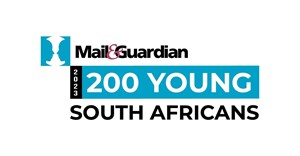Trending
Elections 2024
Jobs
- Event Promoter Nelspruit
- Event Promoter Hazyview
- Independent Media Sales Contractors All Areas
- Experiential Marketing Creative Director-Copywriting/Strategy/Ideation Joahnnesburg
- Marketing Manager Cape Town
- Personal Assistant to the Directors Cape Town
- Freelance social media writers Johannesburg
- Delegate Sales Executive Pretoria
Content owners are here to stay
The recent release of the Audit Bureau of Circulations (ABC) results came with the usual hoopla, shouts of doom and gloom, and general sentiment that print is headed for the chopping block. After all, the numbers don't look good. The real cost of reaching consumers in some titles has increased by up to 1000% in the past five years.
I don't agree with the naysayers entirely. This is not the beginning of the end for print media owners. These companies will be here for many, many years to come. Maybe not in their current format, but definitely around. My reasoning is pretty simple - these media owners still own an asset that is incredibly valuable, quite scarce and, if managed properly, very profitable.
The asset? Content...
People hunger for content. It is the reason they switch on the television, listen to the radio, read the newspapers and access social networks like Twitter and Facebook.
Media owners (henceforth known as content owners) need to formalise two simple principles:
1. What the best platform is to get the content to the user (distribution).
2. How to make some money along the way (monetisation).
When it comes to distribution, some content owners do a better job than others do. Look at the likes of Media24, which has evolved to distribute its content in various ways, going beyond the traditional channels of newspapers and magazines to digital channels such as News24 (online, mobile, apps and others) and their various social media plug ins.
An example of this is Beeld, which has over 300,000 unique online subscribers visiting it on a monthly basis and a print circulation of 67,000. For Beeld, the distribution method of the content is clearly evolving.
Building on an asset
A few years ago, Primedia Broadcasting represented four really good radio stations. Then they realised they were sitting on a newsroom that created tons of content daily and that could be used smarter. Enter Eyewitness News (EWN), which is now a website, a social media service, and maybe one day a television channel. This is a simple example of a content owner realising the company's valuable asset and then working on branding, distributing and monetising it.
While on the topic of content ownership, one has to ask: When does someone like EWN reporter Barry Bateman become a content owner himself and why should he use Primedia to distribute his content? Somewhere in that mess might lie a future for a smart journalist and business entrepreneur.
I don't know why Naspers has never optimised its massive newsroom (the company 'owns' thousands of journalists creating tons of content daily) and launch a television news service on DStv. Naspers owns the content - surely printing and selling it is not the most optimal way to distribute and monetise it? You already own a television network, so evolve and look at that rather. Koos Bekker, CEO of Naspers, will have to explain that to me one day.
Mail & Guardian takes the sexy, clever route
The billion rand question, of course, is how do you monetise these initiatives? Let's look at the Mail & Guardian as an example. The print product distributes 45,000 copies a week, for which the newspaper receives a certain amount of money in revenue from cover price and advertising. Compare this to the M&G's digital presence. It has a Twitter following of 110,000 people (more than any other newspaper in South Africa), showing that there is a massive appetite for its content. It is looking at interesting and exciting ways of now distributing this content via iPad and other online channels. It's all very clever, very sexy, and very exciting. However, how does the company make money? After all, you need to pay the salary bills of the team producing the content. That is the tough part.
There are a couple of options. Websites like Beeld, Die Burger and Volksblad have gone the paywall route. It makes a lot of sense for them but the jury is out on how much consumers are willing to pay for these services. Then, there is online advertising that - whichever way you look at it - will be smaller than what they make in the newspaper for many years to come.
The question is then: If the printed version disappeared, would the content owners make enough money off the paywall and online advertising to fund the content? I don't know.
The distribution and monetisation of content is one of the most fundamental and exciting shifts we will see evolving over the next 20 years. One thing is for sure though: content owners will be around, and they will be profitable, despite what happens with the ABC figures.
Harry Herber is away in the United States and will be back in The Media next month.



















